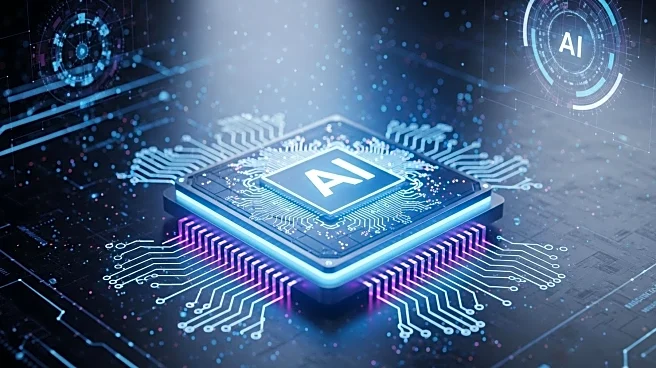What's Happening?
Meta has developed an artificial intelligence model known as Video Joint Embedding Predictive Architecture (V-JEPA) that exhibits a form of 'surprise' when encountering unexpected information in video content. This model, which does not rely on predefined assumptions about physics, learns about the world through video analysis. V-JEPA uses higher-level abstractions rather than pixel-level data to understand video content, allowing it to focus on essential details and ignore irrelevant information. The model's ability to predict and react to physical properties in videos, such as object permanence and gravity, has been tested with high accuracy, showing a near 98% success rate in identifying physically plausible events.
Why It's Important?
The development of V-JEPA represents a significant advancement in AI's ability to mimic human-like intuition and understanding of physical environments. This capability is crucial for applications in autonomous systems, such as self-driving cars and robotics, where understanding and predicting physical interactions are essential. By focusing on latent representations rather than pixel data, V-JEPA can efficiently process video information, reducing the need for extensive labeled data. This approach not only enhances AI's ability to perform complex tasks but also reduces the computational resources required, potentially leading to more efficient and cost-effective AI solutions.
What's Next?
Meta's team has released an updated version, V-JEPA 2, which has been pretrained on a vast dataset of 22 million videos. This new model is being applied to robotics, where it is used to plan actions based on video data. The team is also working on improving the model's memory capabilities to handle longer video sequences, which is currently a limitation. Future developments may include refining the model's ability to quantify uncertainty in predictions, further enhancing its applicability in real-world scenarios.
Beyond the Headlines
The ethical implications of AI models like V-JEPA are significant, as they raise questions about the extent to which machines can replicate human cognitive processes. The ability of AI to predict and react to physical environments could lead to broader applications in surveillance, security, and personal privacy. As these models become more sophisticated, it will be crucial to address potential biases and ensure that AI systems are transparent and accountable in their decision-making processes.











